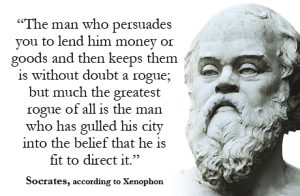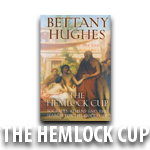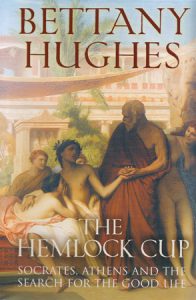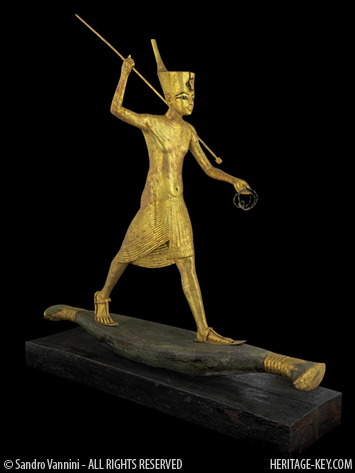 In 399 BC the Greek philosopher Socrates, by then around the age of 70, was executed in his home state of Athens.
In 399 BC the Greek philosopher Socrates, by then around the age of 70, was executed in his home state of Athens.
He was prosecuted for the rather dubious crimes of “not acknowledging the gods the city acknowledges” and “subverting the youth of the city”.
His case was brought to court and prosecuted by a man named Meletus Meletou. After a one day long trial (the norm back then) he was found guilty by a jury of 501 peers – and sentenced to death.
Modern day historians suspect that this trial was politically motivated. Indeed Socrates is said to have referred to himself as the “gadfly” of Athens and wasn’t afraid to engage in critical thought and challenge old ideas.
In his long career as a philosopher he wrestled with basic questions of right and wrong, denounced materialist lifestyles and even warned of the danger of human love. Yet, despite his influence, no writings of his have survived to present day. Most of what we know about him comes from two of his contemporaries, Plato and Xenophon, who talk about him at great length. How accurate these two writers are is a question open to debate.
Below are 10 Socrates quotes that I found particularly interesting and worthy of reflection – after all, as Bettany Hughes writes in ‘The Hemlock Cup‘, “we think the way we do, because Socrates thought the way he did”. His ideas, today, are still good food for thought – especially if you plan on reading Bettany Hughes‘ new book (in an interview with Heritage Key, Bettany tells us more about her latest book, and bringing ancient history into the 21st century).
The quotes are courtesy of the Perseus Digital Library at Tufts University.
Socrates on government
Socrates believed in good government and spent a good deal of time talking about how a leader should behave. He wasn’t afraid to blast those who didn’t measure up. Here are two of his zingier rebukes.
“It seems strange enough to me that a herdsman who lets his cattle decrease and go to the bad should not admit that he is a poor cowherd; but stranger still that a statesman when he causes the citizens to decrease and go to the bad, should feel no shame nor think himself a poor statesman.” – Xen. Mem. 1.2.32
“The man who persuades you to lend him money or goods and then keeps them is without doubt a rogue; but much the greatest rogue of all is the man who has gulled his city into the belief that he is fit to direct it.” – Xen. Mem. 1.7.4
Socrates on love
Socrates was wary of human love, especially sex, feeling it a distraction that gets in the way of living a virtuous life. Nevertheless he himself appear to have fallen in love. At the time he was executed he was married to Xanthippe and had two young sons and an older one.
“And do you think, you foolish fellow, that the fair inject nothing when they kiss, just because you don’t see it? Don’t you know that this creature called ‘fair and young’ is more dangerous than the scorpion, seeing that it need not even come in contact, like the insect, but at any distance can inject a maddening poison into anyone who only looks at it?” – Xen. Mem. 1.3.13
Socrates on being a better person
During his trial he exhorted the people judging him to stop being so greedy and seek a better lifestyle. Afterwards, while in prison, he shares his worries with his friend Crito.
“I shall never give up philosophy or stop exhorting you and pointing out the truth to any one of you whom I may meet, saying in my accustomed way: “Most excellent man, are you who are a citizen of Athens the greatest of cities and the most famous for wisdom and power, not ashamed to care for the acquisition of wealth and for reputation and honor, when you neither care nor take thought for wisdom and truth and the perfection of your soul?” – Plat. Apol. 30d
“I only wish, Crito, the people could accomplish the greatest evils, that they might be able to accomplish also the greatest good things. Then all would be well. But now they can do neither of the two; for they are not able to make a man wise or foolish, but they do whatever occurs to them.” – Plat. Crito 44d
Socrates on his trial and death sentence
When it came time to be sentenced, Socrates was defiant. He suggested that he should get free meals paid for by the state! He also suggested that god sent him to be Athens gadfly – someone to stir things up.
“If you put me to death, you will not easily find another, who, to use a rather absurd figure, attaches himself to the city as a gadfly to a horse, which, though large and well bred, is sluggish on account of his size and needs to be aroused by stinging. I think the god fastened me upon the city in some such capacity, and I go about arousing…” – Plat. Apol. 30e
“There is nothing, men of Athens, so fitting as that such a man be given his meals in the prytaneum. That is much more appropriate for me than for any of you who has won a race at the Olympic games with a pair of horses or a four-in-hand. For he makes you seem to be happy, whereas I make you happy in reality; and he is not at all in need of sustenance, but I am needy…” – Plat. Apol. 36d
Socrates’ observations about the world
Socrates was an observer of things and formed opinions about the broader world.
“Do you think there is anything more unusual than to find a very large or a very small man, or dog, or other creature, or again, one that is very quick or slow, very ugly or beautiful, very black or white? Have you not noticed that the extremes in all these instances are rare and few, and the examples between the extremes are very many?” “And don’t you think,” said he, “that if there were to be a competition in rascality, those who excelled would be very few in that also?”- Plat. Phaedo 90a
“I believe that the earth is very large and that we who dwell between the pillars of Hercules [strait of Gibralter] and the river Phasis [in Georgia] live in a small part of it about the sea, like ants or frogs about a pond, and that many other people live in many other such regions… ” – Plat. Phaedo 109b
Socrates’ Last Words
Socrates last words were not very poetic – although he was certainly careful to settle his debts.
“Crito, we owe a cock [a bird] to Aesculapius. Pay it and do not neglect it.” – Plat. Phaedo 118a

‘The Hemlock Cup‘ hits the stores (and Amazon) October 7th. It is not ‘merely’ a Socrates biography; using a unique combination of archaeological, geological and historical clues, the historian recreates for the reader the world of Socrates with a vivacity not before achieved.
Bettany Hughes visited every spot were the philosopher was said to have walked, loved, fought and philosophised and investigated the many digs that are uncovering the world of ‘Golden Age’ Athens. She brings this fresh evidence to bear on the life of the man whose idea ‘the unexamined life is not worth living’ is thought to be at the root of what it is to live in the 21st century.






